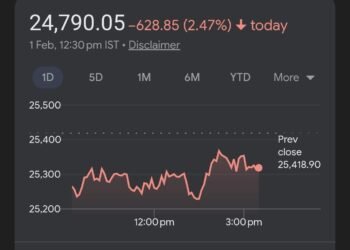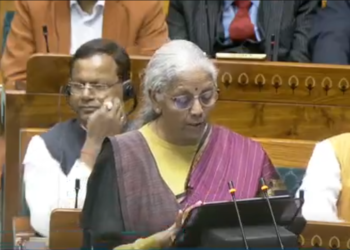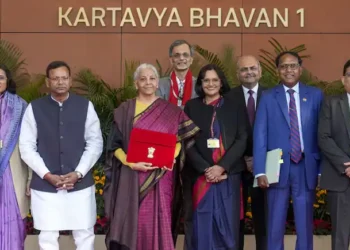ICMR slams BHU study on Covaxin
The Indian Council of Medical Research, or ICMR, has distanced itself from a follow-up research by two Banaras Hindu University professors, which found that over one-third of 926 people who received the India-made Covaxin COVID-19 vaccination experienced major adverse effects.
According to the study, approximately 1% of respondents experienced strokes and Guillain-Barré Syndrome, an autoimmune illness that causes nerve paralysis in the arms and legs.
The study, which ran from January 2022 to August 2023, also found that 50% of the sample size complained of respiratory infections, and more than 30% reported a variety of medical ailments ranging from skin and nervous system illnesses to bone and muscle problems.
Specifically, among adolescents and adults, the study found that 10.5% reported new-onset skin and subcutaneous problems and 10.2% reported nervous system issues.
4.6% of female respondents reported menstruation problems.
Also read: ICMR’s new dietary guidelines regarding consumption of tea-coffee: Check here
Kaur et al. published their work titled “Long-Term Safety Analysis of the BBVl52 Coronavirus Vaccine in Adolescents and Adults: Findings from a 1-Year Prospective Study in North India” in the journal Drug Safety.
According to ANI, ICMR chief Rajiv Bahl has written a letter to the paper’s authors and the journal, Springer Nature, requesting that the acknowledgement to ICMR be removed and an erratum published.
Following up on a lengthy list of important findings, the head of ICMR stated that it is hard to evaluate changes in these incidences throughout the post-vaccination era because the study does not provide background rates of observed events in the population.
What authors of the study had to say?
The researchers agreed, among other things, that in order to compare the frequencies of reported serious side effects, it was necessary to include an unvaccinated control group in order to fully grasp the link between AESIs and vaccines.
The authors added that they were unable to comment on changes in the incidence of observed occurrences in post-vaccination periods due to the lack of data on background rates of observed AESIs.
Also read: 5 Doctor Recommended Diets for a Healthy Heart
“Our findings are confined to BBV152 (Covaxin) and should not be extrapolated to viral vector or mRNA vaccines. The study primarily involved adolescents and the sample size of adults was relatively small. Larger adult-based studies are needed to understand long-term safety of BBV152 in adults.”
Bharat Biotech, the originator and manufacturer of Covaxin, has also questioned the report, citing various alternate studies to highlight the drug’s “excellent safety track record.”













